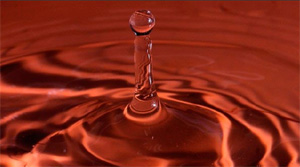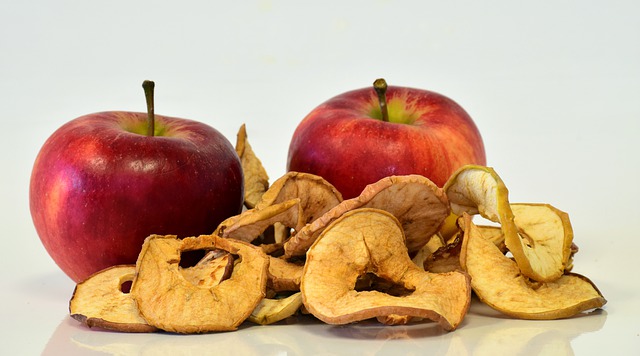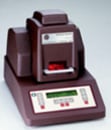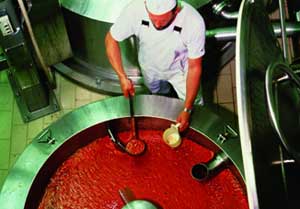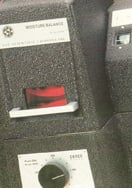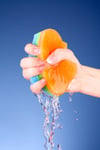Last week, as I was reflecting on a recent moisture content problem, I recalled our series “Loss-on Drying and Other Moisture Mysteries.” In that series I examined moisture chemistry in products. However, I did little to define moisture content.
Topics: Bound Moisture, Free Moisture, Moisture Analysis, Water Activity, Moisture Testing, Karl Fischer, Karl Fischer Titration, Moisture
Regularly I’m asked the question; “How accurate is this moisture balance?”
The questioner asks for the answer in terms of percent (%) moisture. When I answer “it depends”, I always get the unspoken response, “Why did I ask this stupid idiot?”
Absolute Measurement
When you ask about the accuracy of something like weight or temperature the answers are straight forward and relate to the instruments' precision. For example 25 grams or 50 degrees plus or minus (+/-) 0.1 gram or 1/2 degree.
Percent is Relative
When you ask the question of how accurate is my percentage reading, the answer becomes complicated. It’s complicated because percentage (%) is a relative term. For example, the answer for the result of a Loss on Drying (LOD) moisture test, is based on the size of the sample you use.
Using the example of a LOD moisture test we can understand the concept. The result of this type of test is calculated by subtracting the weight of the sample at the end of the test from the weight of the sample at the beginning of the test. This difference is divided by the initial weight of the sample. This procedure produces a % moisture result.
Sample Size
In the following analysis, the implication s of sample size and instrument precision will be illustrated. This will be based on a sample that has 23.5% moisture and an electronic LOD moisture balance that has a sensitivity of 0.001 grams and repeatability of ± .005 grams.
Sample Analysis
Topics: Moisture Analysis, Moisture Testing, CSC Digital Moisture Balance, Loss-On-Drying, Moisture, moisture balance, instrument accuracy
Four Reasons Why Food Manufacturers Should Monitor Moisture
Posted by Amanda Ranowsky on Mar 12, 2018 8:00:00 AM
Topics: Moisture Oven Test, Moisture Analysis, Moisture Testing, CSC Digital Moisture Balance, Loss-On-Drying, Moisture, fast moisture test, moisture balance, moisture content, moisture measurement
Loss on Drying (LOD) Moisture Balance analysis is based on drying a sample and comparing the difference in weight before and after drying.
Topics: Moisture Testing, Loss-On-Drying, moisture balance
When we first started measuring moisture with Karl Fischer, I was instructed in the complex chemical reactions involved. I was also was told that the process was skittish.
Read MoreTopics: Coulometric Karl Fischer, Volumetric Karl Fischer, Moisture Testing, Karl Fischer, Karl Fischer Titration, Moisture
LOD is Really Simple, or Moisture Analysis for the Newbie
Posted by Art Gatenby on Jun 12, 2015 4:51:00 PM
One quiet night, long ago I was musing over moisture analysis and how easy it is to do using Loss-on Drying (LOD). Little did I know what was in store.
Read MoreTopics: Bound Moisture, Moisture Analysis, Moisture Testing, Loss-On-Drying
Five years ago, we published an article on in-line vs. off-line moisture measurement. At that time we debated whether these measurement systems should be called on-line or in-line. We chose to use the term "on-line". Since then, however, the world of the internet became known as "online". So, to avoid confusion, we changed our view and now refer to direct measurement as "in-line" moisture measurement.
Read MoreTopics: Moisture Analysis, Moisture Testing, Loss-On-Drying, In-Line Moisture Measurement
I am very excited about a new update to the CSC Digital Moisture Balance. To give you a perspective of why I’m excited about this Moisture Content Analyzer update, I thought you my be interested in the story of the transition from a classic mechanical moisture analyzer to the current highly robust and durable electronic instrument of today.
Topics: Moisture Analysis, Moisture Testing, Loss-On-Drying
Moisture Content - Water Activity – Are They the Same Thing?
Posted by Art Gatenby on Mar 6, 2012 4:19:00 PM
The other day, I woke up with a lingering quandary: Are the concepts of
Moisture Content and Water Activity the same thing?
As usual, I’ve decided to take on the task of clarifying the difference. I hope I pull it off.
From the perspective of someone who supplies instruments that measure moisture content, water activity has not been a primary consideration. However, I believe that comparison and contrast of these important concepts will be useful.
Topics: Moisture Sorption Isotherm, Infrared Moisture, Moisture Analysis, Water Activity, Moisture Testing, bound water
“Why are my Moisture Test results inconsistent?”
That is an issue for many of you who test for moisture. We discussed the complexities and multiplicity of issues involved with moisture content determination in our “Loss-on Drying Moisture Analysis and other Moisture Mysteries” series.
In addition to intrinsic properties of test samples that may adversely affect moisture testing systems, automatic equipment parameter set-up, operator oversights and sample handling contribute to seemingly intractable moisture test result inaccuracies.
Topics: Moisture Analysis, Moisture Testing, Karl Fischer, Loss-On-Drying, Moisture

